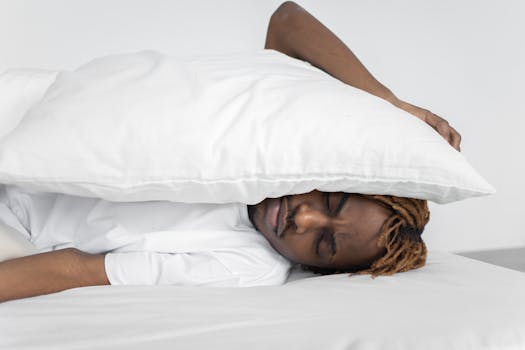
Creating a Balanced Sleep Routine for Better Rest
Creating a balanced sleep routine is essential for better rest and improved overall health. Creating a balanced sleep routine can help you feel more energized, focused, and prepared to take on the day. In this article, we will discuss the importance of a balanced sleep routine and provide tips on how to create one.
Why is Sleep Important?
Sleep is a vital component of our overall health and well-being. During sleep, our body repairs and regenerates damaged cells, builds bone and muscle, and strengthens our immune system. Sleep also helps us to process and consolidate memories, and it plays a critical role in our mental health and mood.
What is a Balanced Sleep Routine?
A balanced sleep routine is a consistent sleep schedule that allows us to get the right amount of sleep each night. Most adults need 7-9 hours of sleep per night, although this can vary from person to person. A balanced sleep routine should include a consistent bedtime and wake-up time, as well as a relaxing bedtime routine to help us wind down and prepare for sleep.
Tips for Creating a Balanced Sleep Routine
Here are some tips for creating a balanced sleep routine:
- Establish a consistent sleep schedule: Go to bed and wake up at the same time each day, including weekends.
- Create a relaxing bedtime routine: Develop a calming pre-sleep routine, such as reading a book, taking a warm bath, or practicing gentle stretches.
- Make your sleep environment comfortable: Create a sleep-conducive environment by ensuring your bedroom is dark, quiet, and cool.
- Avoid caffeine and electronics before bedtime: Avoid consuming caffeine and using electronic devices for at least an hour before bedtime.
- Get regular exercise: Regular physical activity can help improve sleep quality, but avoid vigorous exercise within a few hours of bedtime.
Common Sleep Disorders and How to Overcome Them
There are many common sleep disorders that can disrupt our sleep routine, including insomnia, sleep apnea, and restless leg syndrome. Here are some tips for overcoming these sleep disorders:
- Insomnia: Try relaxation techniques, such as deep breathing or meditation, to help you fall asleep. Avoid caffeine and electronics before bedtime, and create a relaxing bedtime routine.
- Sleep Apnea: Use a continuous positive airway pressure (CPAP) machine to help keep your airway open during sleep. Lose weight if you are overweight, and avoid sleeping on your back.
- Restless Leg Syndrome: Engage in regular physical activity, such as walking or yoga, to help alleviate symptoms. Avoid caffeine and nicotine, and try relaxation techniques, such as deep breathing or meditation.
Conclusion
Creating a balanced sleep routine is essential for better rest and improved overall health. By establishing a consistent sleep schedule, creating a relaxing bedtime routine, and avoiding caffeine and electronics before bedtime, we can improve the quality of our sleep and wake up feeling more energized and focused. Remember to also get regular exercise, make your sleep environment comfortable, and avoid common sleep disorders to ensure a good night’s sleep.



